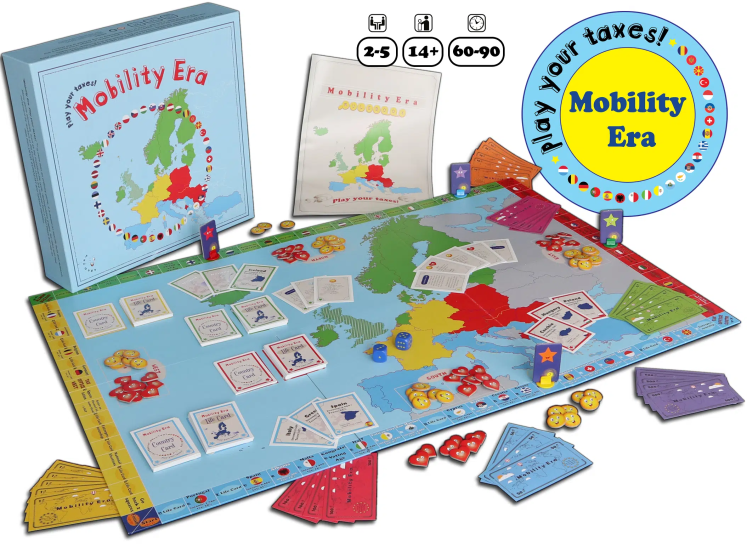In 2016, Irina Burlacu de Paoli (UNU-MERIT PhD alumna and external lecturer at Maastricht University’s Center for European Studies and Maastricht Summer School) created the Mobility Era Game, a research-based financial literacy board game. In the same year, she also founded Researchista, a platform that helps package research findings into creative, tangible learning tools.
In this blog post, Burlacu de Paoli shares some key learnings from a recent paper she published as part of the UNU-MERIT Working Paper Series, 'Transition from Information and Communications Technology to Educational Technologies and Game-Based Learning in the Republic of Moldova: The Case of The Mobility Era Game'.
In the rapidly evolving landscape of education, the integration of information and communications technology (ICT) into learning environments has become more than just a trend; it’s a necessity. This shift is particularly relevant in regions such as the Republic of Moldova in Eastern Europe, where the term 'educational technology' (EdTech) is still gaining traction. Our study explores this transition by examining the role of educational technology and game-based learning in Moldova, with a focus on the Mobility Era Game.
Bridging the Gap: ICT to EdTech in Moldova
Despite a lack of widespread use of the term 'EdTech' in Moldovan educational strategies, significant strides have been made. The Technical University of Moldova’s groundbreaking new partnership with Google is a testament to the growing interest and commitment to digitalizing education. This partnership and others like it highlight an emerging trend: national authorities are increasingly interested in leveraging technology to enhance educational outcomes.
Our study aimed to shed light on the needs and relevance of EdTech and game-based learning through the perspectives of educational managers in Moldova. By analyzing responses from 70 institutional managers, we gained valuable insights into the current landscape and future potential of educational technologies in the country.
The core of our study revolved around the Mobility Era Game, an educational tool designed to enhance learning through interactive and engaging gameplay. This game not only exemplifies innovative EdTech but also served as a focal point for our research into its practical application in Moldovan schools.
Key Findings and Insights
Our preliminary findings reveal several important trends:
1. Openness to EdTech: Moldovan school leaders exhibit a high degree of adaptability and openness to integrating EdTech into their curricula. However, the use of educational games remains moderate, indicating room for growth and increased adoption.
2. Urban vs. Rural Disparities: There is a noticeable disparity in the adoption and awareness of technological developments between urban and rural areas. Urban schools have better access to the latest technologies, highlighting a need for targeted efforts to bridge this gap.
3. Skepticism Towards Technology: Despite the enthusiasm for EdTech, there remains a significant level of skepticism regarding its effectiveness and implementation. Addressing these concerns through evidence-based practices and success stories will be crucial in fostering wider acceptance.
Looking Ahead
The transition from ICT to EdTech in Moldova is well underway, with promising developments on the horizon. The Mobility Era Game and similar game-based tools offer exciting opportunities to enhance educational experiences and outcomes. As Moldovan educators continue to embrace these technologies, it will be important to support them with robust training, resources and ongoing dialogue.
Our study underscores the importance of continuous learning and adaptation in the field of educational technology. By addressing the challenges and leveraging the opportunities identified, Moldovan authorities can pave the way for a more digitally advanced and effective educational system in their country.
For those interested in exploring this further, our full study provides a detailed analysis and recommendations for advancing EdTech in Moldova. Stay tuned for more updates and insights as we continue to track the progress of educational technology in this evolving landscape.
Suggested citation: Dr. Irina Burlacu de Paoli., "EdTech, Gamification and the Future of Education: A Case Study in Eastern Europe," UNU-MERIT (blog), 2024-09-17, 2024, https://unu.edu/merit/blog-post/edtech-gamification-and-future-education-case-study-eastern-europe.


